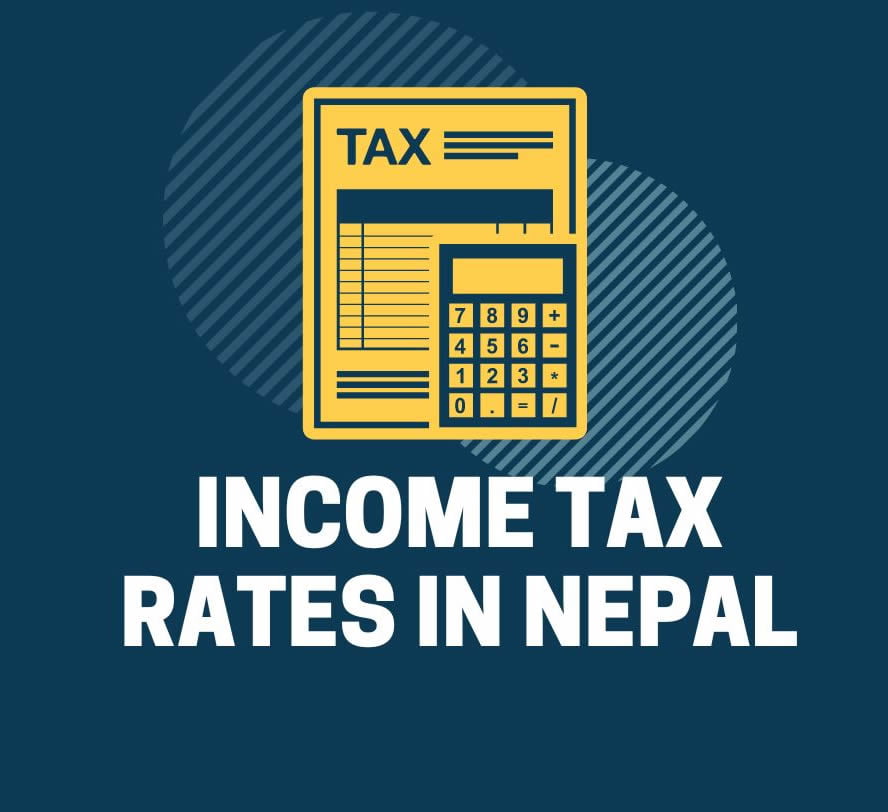
Introduction
Taxation is a critical component of any country’s economic framework, providing the necessary resources for development and governance. Nepal’s taxation system, while evolving, is characterized by its unique structure and numerous challenges. This blog explores the various aspects of the Taxation System of Nepal, including its structure, types of taxes, challenges, and potential reforms needed to enhance efficiency and compliance.
Structure of the Taxation System of Nepal
Tax Administration
Nepal’s tax administration is overseen by the Inland Revenue Department (IRD), under the Ministry of Finance. The IRD is responsible for collecting major taxes, including income tax, VAT, and excise duties. The Customs Department handles customs duties and other related taxes on imports and exports.
Types of Taxes
Nepal’s taxation system comprises direct and indirect taxes. The primary direct taxes are income tax and property tax, while the major indirect taxes include Value Added Tax (VAT), customs duties, and excise duties.
- Personal Income Tax: Levied on individuals based on their income levels, with progressive tax rates.
- Corporate Income Tax: Applied to businesses, including domestic and foreign companies operating in Nepal. The standard corporate tax rate is 25%, with variations for specific industries.

- Value Added Tax (VAT)
- VAT is a consumption tax levied on the sale of goods and services. The standard VAT rate in Nepal is 13%. VAT is a significant revenue source and applies to most transactions, with exemptions for essential goods and services.
- Customs Duties
- Customs duties are levied on imported goods to protect domestic industries and generate revenue. The rates vary based on the type of goods and their value.
- Excise Duties
- Excise duties are imposed on specific goods, such as alcohol, tobacco, and petroleum products. These duties aim to generate revenue and regulate the consumption of these goods.
- Property Tax
- Property tax is levied on real estate and land ownership. Local governments primarily administer this tax.
Challenges in Nepal’s Taxation System
Tax Compliance and Evasion
Tax evasion remains a significant challenge in Nepal. Many individuals and businesses underreport their income or fail to file tax returns, leading to substantial revenue losses. The informal economy, which comprises a large part of Nepal’s economic activities, also contributes to tax evasion.
Administrative Efficiency
The tax administration system in Nepal faces issues of inefficiency and corruption. Complex tax procedures, lack of automation, and inadequate training of tax officials contribute to administrative bottlenecks. This inefficiency hampers effective tax collection and compliance monitoring.
Narrow Tax Base
Nepal’s tax base is relatively narrow, with a significant portion of the population and businesses operating outside the formal tax system. This narrow base limits the government’s ability to generate sufficient revenue to fund public services and infrastructure projects.
Complexity and Transparency
The tax system in Nepal is often criticized for its complexity and lack of transparency. Frequent changes in tax laws and regulations create confusion among taxpayers, making compliance difficult. Additionally, the lack of clear and accessible information on tax obligations and procedures further exacerbates this issue.
Recent Reforms and Initiatives
Digitization and E-Governance
To address administrative inefficiencies and improve compliance, the Nepalese government has been focusing on digitization and e-governance. Initiatives such as the introduction of an online tax filing system (e-TDS) and the implementation of electronic VAT invoicing aim to simplify tax processes and reduce the scope for corruption.
Tax Policy Reforms
The government has undertaken several tax policy reforms to broaden the tax base and enhance revenue collection. These reforms include reducing tax rates for small businesses, introducing tax incentives for specific industries, and simplifying tax procedures for micro and small enterprises.
Public Awareness Campaigns
Increasing public awareness about the importance of tax compliance is crucial for improving tax collection. The government has launched awareness campaigns to educate citizens about their tax obligations, the benefits of paying taxes, and the penalties for non-compliance.
Future Prospects and Recommendations
Expanding the Tax Base
To increase revenue, Nepal must broaden its tax base. This can be achieved by formalizing the informal economy, enhancing the registration of businesses and individuals, and implementing measures to capture income from the digital economy. Simplifying tax procedures and providing incentives for formalization can encourage more entities to enter the tax net.
Strengthening Tax Administration
Improving the efficiency and integrity of tax administration is essential. This includes investing in the training of tax officials, enhancing the use of technology in tax collection and monitoring, and implementing stricter measures to combat corruption. A robust and transparent tax administration system can boost taxpayer confidence and compliance.
Simplifying Tax Laws
Simplifying tax laws and regulations can reduce compliance costs for taxpayers and make the system more transparent. Clear, consistent, and accessible tax regulations can help taxpayers understand their obligations and reduce the incidence of unintentional non-compliance.
Enhancing Public Services
Demonstrating the effective use of tax revenues in public services and infrastructure projects can build public trust and willingness to comply with tax obligations. Transparent reporting on how tax revenues are utilized can strengthen the social contract between the government and taxpayers.
Conclusion
Nepal’s taxation system, while evolving, faces several challenges that need to be addressed to enhance efficiency and compliance. By broadening the tax base, strengthening tax administration, simplifying tax laws, and enhancing public services, Nepal can create a more robust and equitable tax system. The ongoing reforms and initiatives are steps in the right direction, but sustained efforts and commitment are required to achieve significant improvements.
As Nepal continues its journey towards economic development and stability, a well-functioning taxation system will play a crucial role in providing the necessary resources for growth and ensuring a fair distribution of wealth. By addressing the existing challenges and implementing strategic reforms, Nepal can build a more transparent, efficient, and inclusive tax system that supports its long-term development goals.
